You might not think it looking at the skyscrapers and concrete, but Hong Kong is home to an abundance of homegrown food. Thanks to the city’s geography, Hongkongers have access to both fresh and saltwater fish. The New Territories are home to 129 certified organic farms, as well as livestock breeders who put quality first.
The result is an array of restaurants that don’t need to bring in their food from overseas: instead, these eateries and their chefs are proud locavores, whose dishes celebrate the city’s natural bounty.
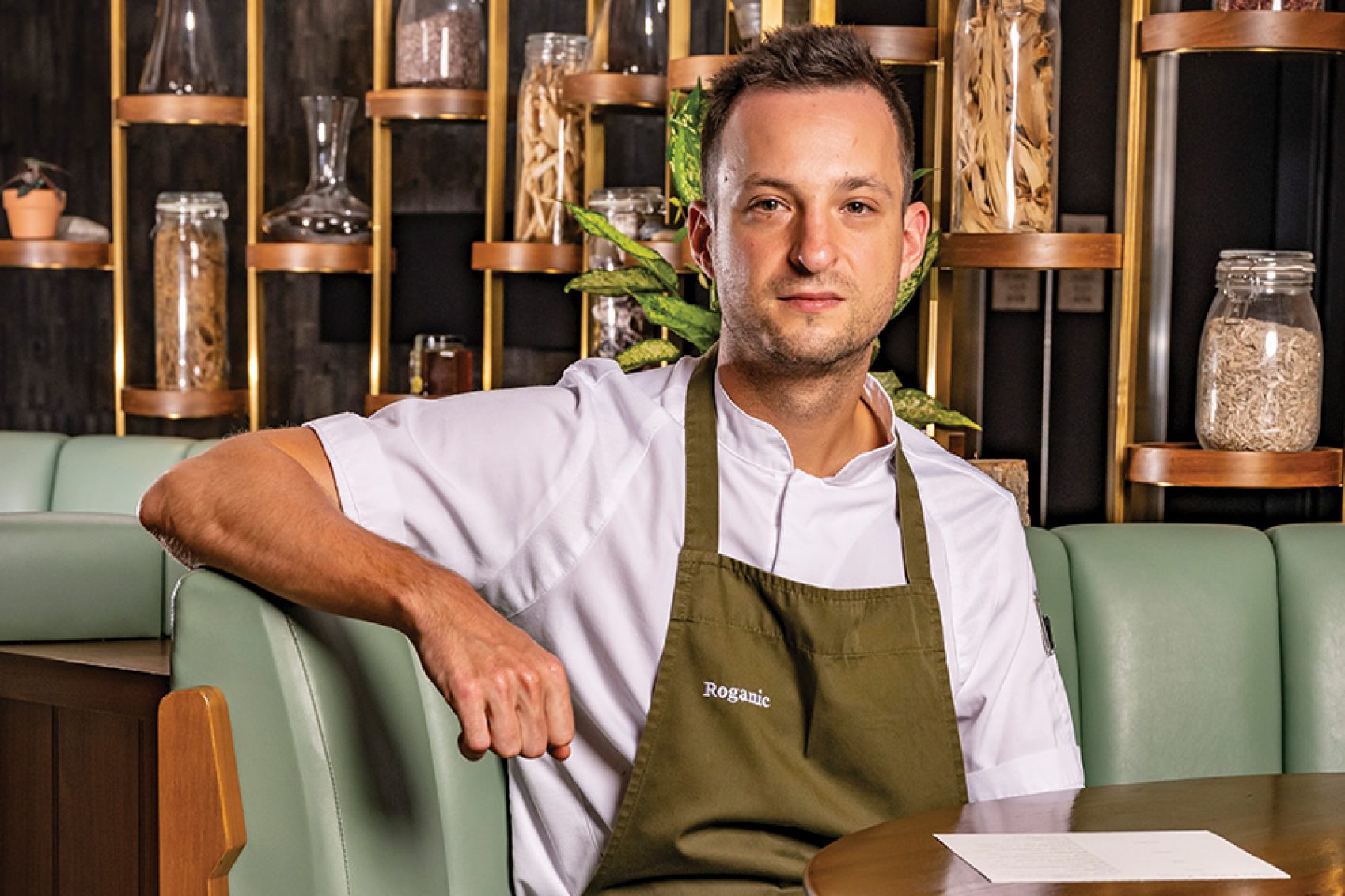
Adam Catterall
Head chef, Roganic Hong Kong
British chef Simon Rogan is celebrated as one of the pioneers of the “farm-to-fork” movement, and his dedication to incorporating high-quality local produce in fine dining is evident at the one-Michelin-starred and Michelin green-starred Roganic Hong Kong.
Here, head chef Adam Catterall follows Rogan’s philosophy and maintains close relationships with local farmers and suppliers, who are credited by name as the stars of its signatures: such as the day boat seabass stuffed with manila clams, Moon Kee watercress and Mr Wu’s courgette; and ruby red strawberries from Ping Che Farm, buttermilk and Plantation earl grey cream. The restaurant also maintains a mini farm on the building’s rooftop, which supplies edible flowers and herbs for dishes.
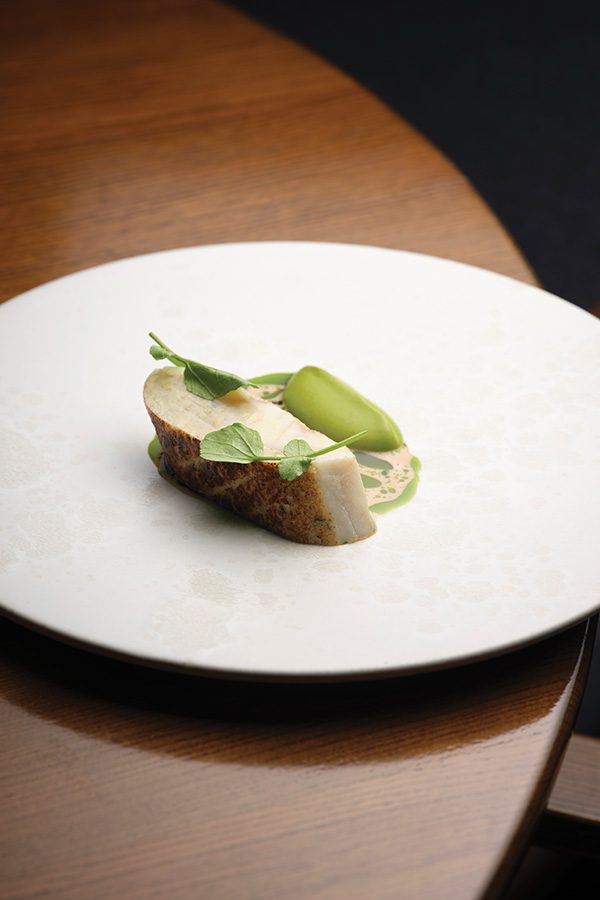
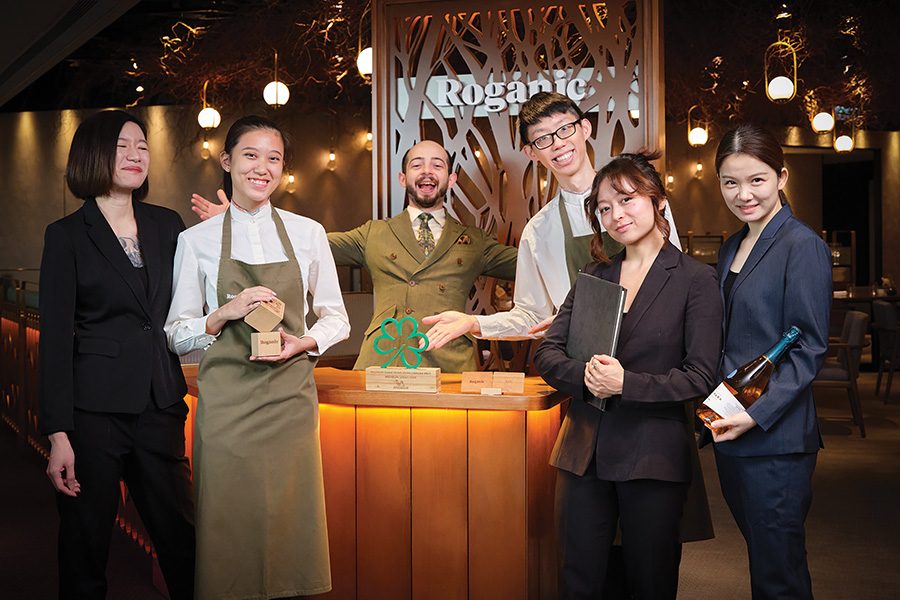
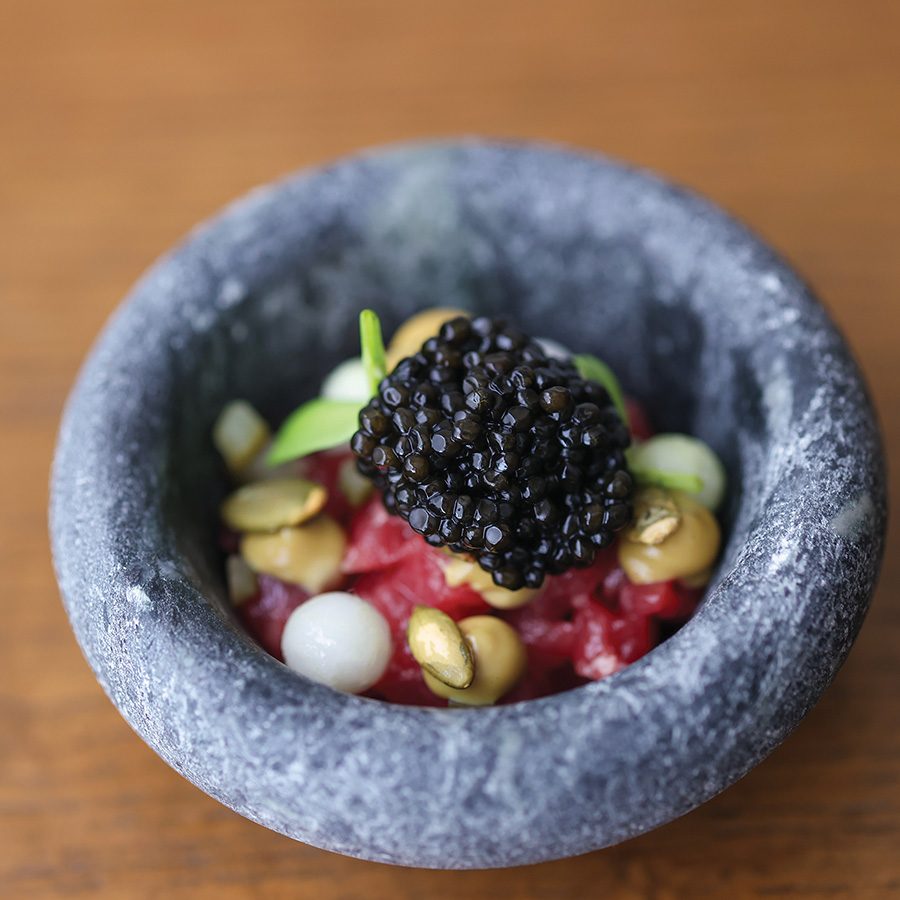
“Emphasising local ingredients presents several challenges: there’s limited variety in the types of crops available throughout the year, and we might not be able to source as much as we need,” says Catterall. “But this always inspires chefs to become more creative when it comes to menu planning – and adaptability.”
UG/F 08, Sino Plaza, 255 Gloucester Road, Causeway Bay, 2817 8383
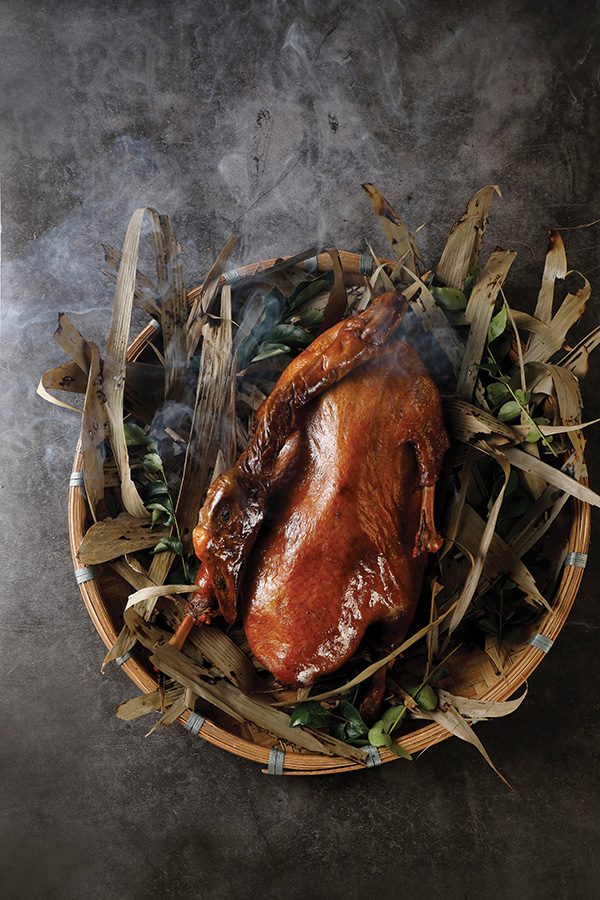
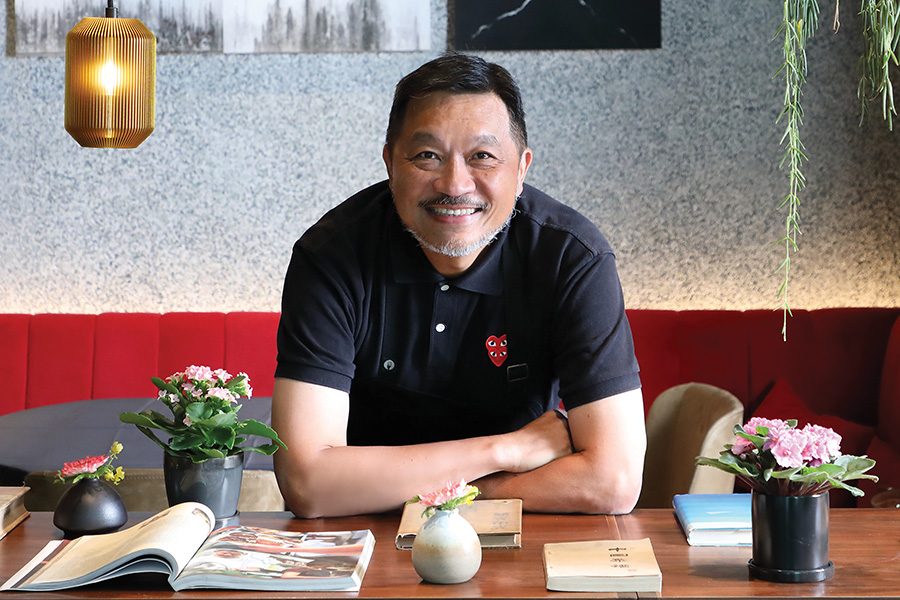
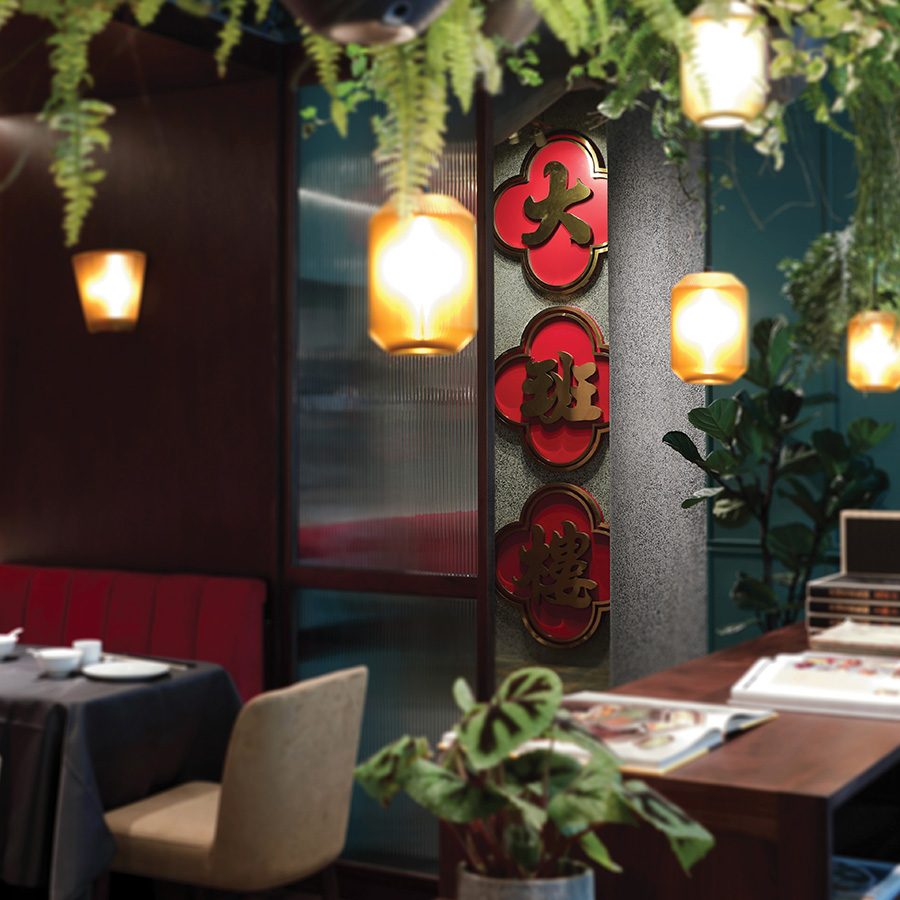
Danny Yip
Co-founder and culinary director, The Chairman
When it comes to using local ingredients, The Chairman is something of an unintentional pioneer. “I’m not too familiar with food trends, but fresh, local ingredients are the essence of Cantonese cooking,” says chef-owner Danny Yip. “They are a must for good Cantonese food.”
Locally sourcing ingredients is an important part of the one-Michelin-starred restaurant’s daily operations. For his seafood signatures, such as the steamed grouper with mandarin peel and salted lard, Yip has enlisted retired fisherman Ah Sup to select the freshest catch at the Aberdeen Wholesale Fish Market every morning. On top of bringing in vegetables, pork and chicken from farms in the New Territories, the restaurant has also established its own farm in Sheung Shui – here preserved chilli, cured meats and dry-aged proteins are produced and delivered directly to The Chairman.
3/F, The Wellington, 198 Wellington Street, Central, 2555 2202
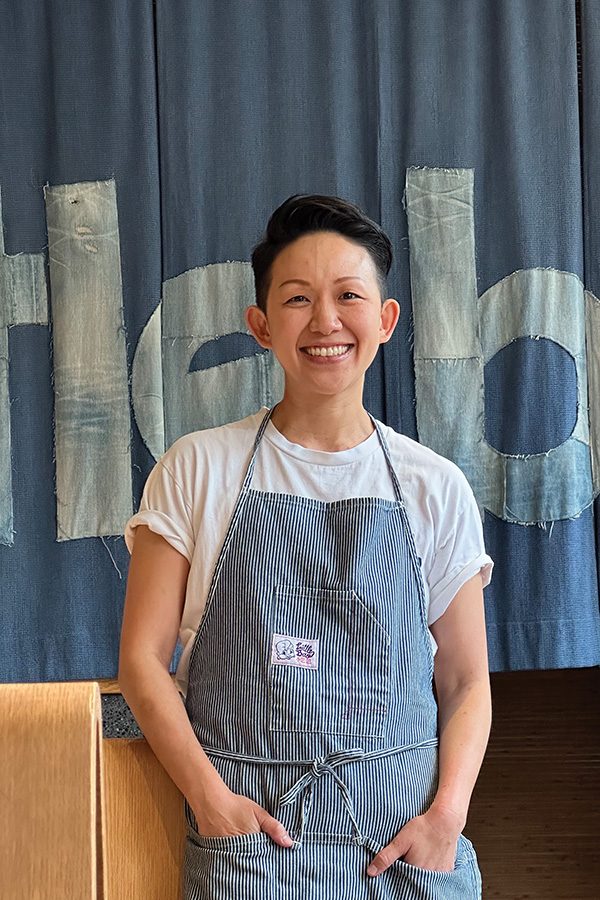
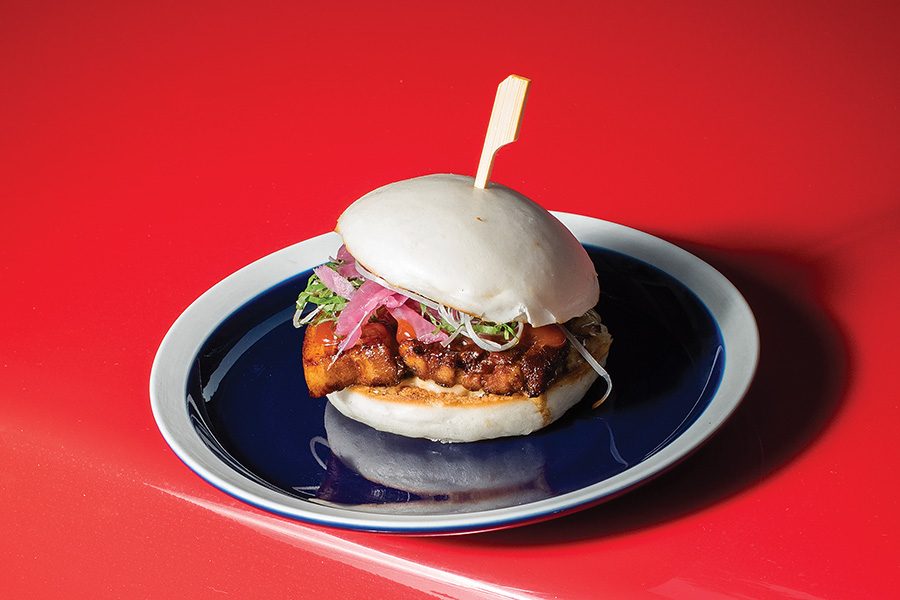
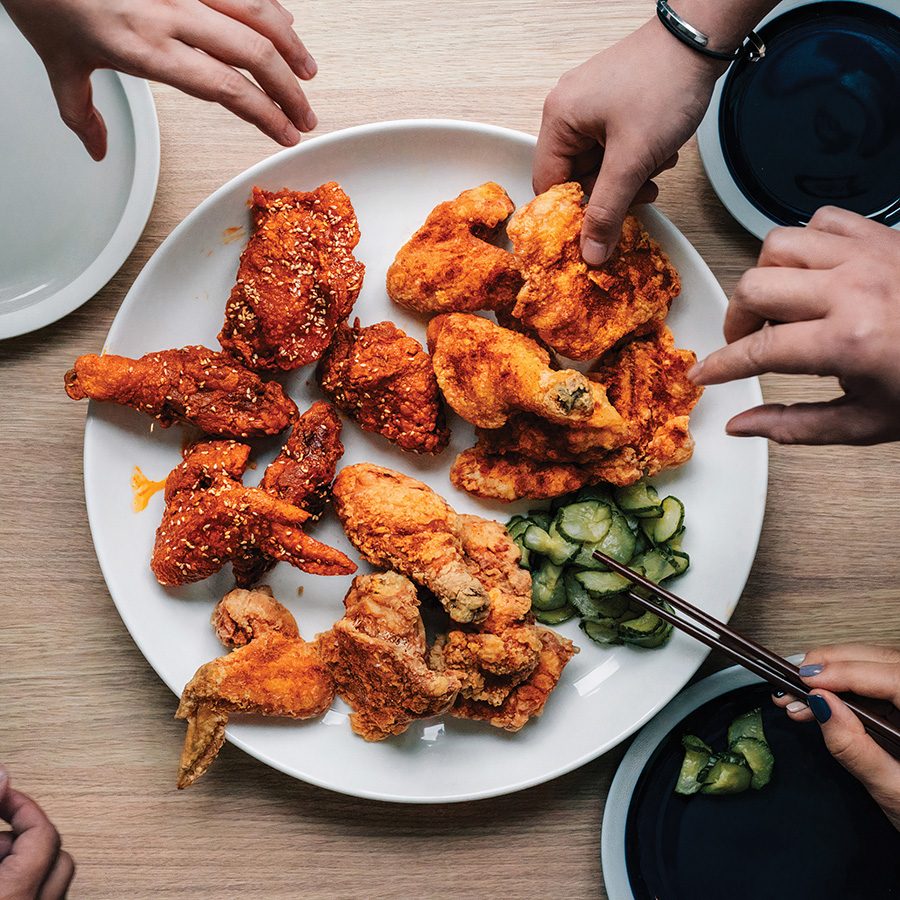
May Chow
Founder and executive chef, Little Bao
May Chow’s modern diner Little Bao is best known for its bao sandwiches, whose buns use flour from Kowloon Flour Mills – the only such mill in the city. While the chef has never explicitly labelled her restaurant as farm-to-table, at least 80 per cent of the ingredients used, including vegetables, sauces and the star ingredients in her fried “three-yellow” chicken and signature slow-braised pork belly bao, all bear a “made in Hong Kong” label. “Fresh ingredients are key to delicious dishes,” says Chow. “When the quality of local ingredients meets our standards, why look farther afield?”
Various locations including: G/F, 1-3 Shin Hing Street, Central, 2818 1280

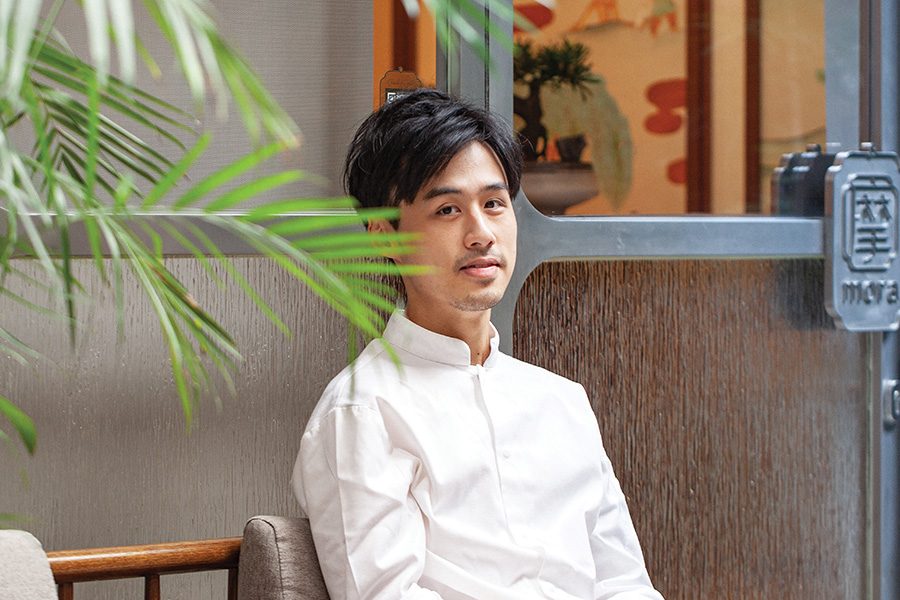
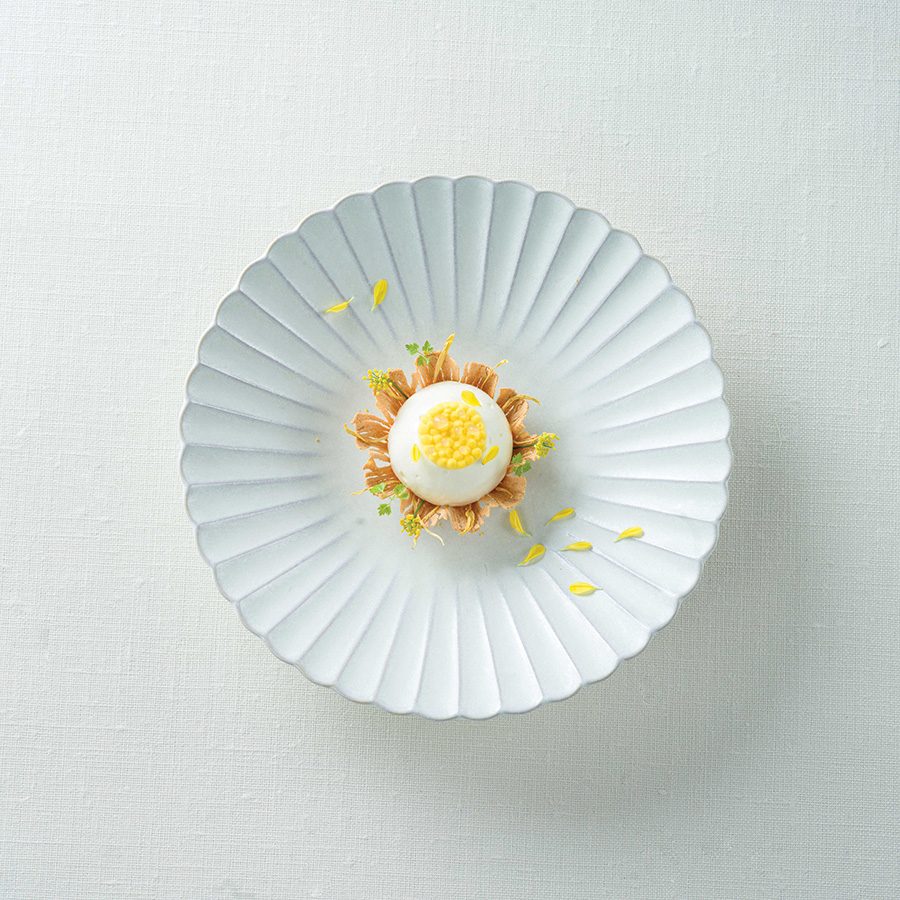
Vicky Lau
Founder and executive chef, Mora Hong Kong
Celebrating the versatility of the soybean is the main ethos of chef Vicky Lau’s forward-thinking, Michelin one star and green star restaurant Mora . Here, the chef taps into her French culinary training and Chinese roots to create dishes that prominently feature everything from tofu and soy milk to soy-based sauces and cures.
Meanwhile, local, seasonal produce also plays a crucial role in bringing her concept to life. Dishes like her signature beancurd skin tart with cauliflower and seaweed, for example, use products from some of Lau’s long-time suppliers.
“I’m proud to have established good relationships with local farmers and small producers in Hong Kong,” says Lau. “The menu at Mora heavily features local ingredients to showcase the city’s farming community and small-batch producers.”
G/F, 40 Upper Lascar Row, Sheung Wan, 9583 8590
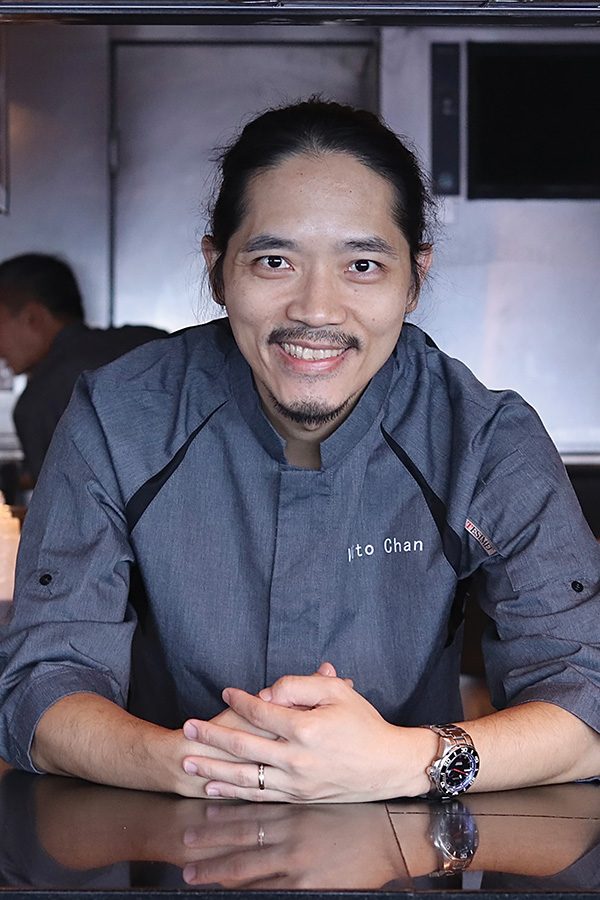
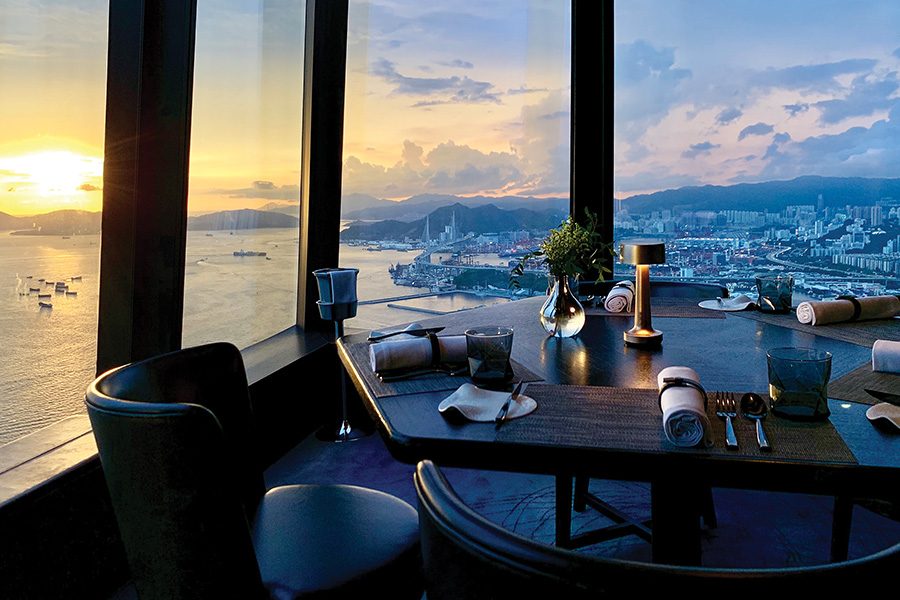
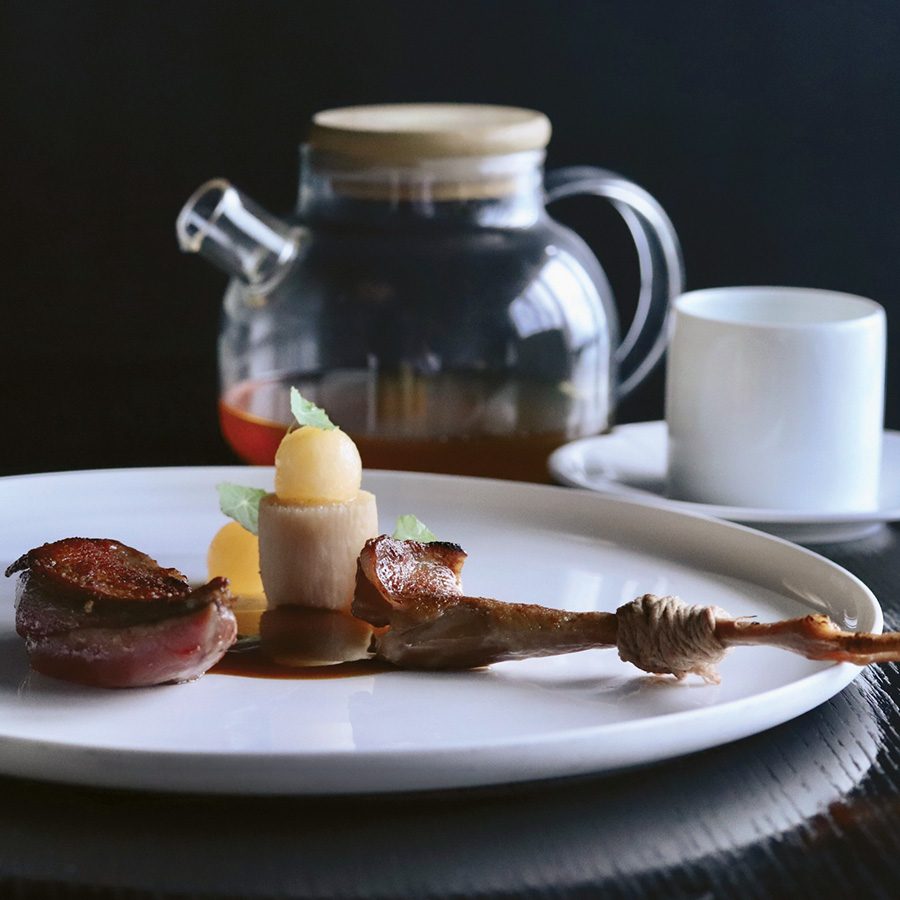
Vito Chan & Celina Ling
Co-head chefs, Odyssée
One of the few chef-couples of Hong Kong’s culinary scene, Vito Chan and Celina Ling of French fine dining restaurant Odyssée are strong proponents of all things homegrown. For years, they’ve visited Hong Kong farms to learn about locally grown produce, from rice to fruit and vegetables.
“As chefs, we have the opportunity to contribute to sustainable gastronomy and reduce our carbon footprint through our choice of ingredients. What’s more, using locally grown fresh produce means we get to incorporate the freshest seasonal items into our dishes – so why not?” says Chan.
At Odyssée , the chefs have crafted a monthly menu themed around the 24 solar terms in the traditional Chinese calendar, featuring seasonal ingredients that will provide diners with the nutrients they need in a particular season. In April, you’ll find the pigeon and celtuce millefeuille with mugworts and Sichuan pepper jus. Thanks to the “cooling” effect of celtuce and mugwort’s ability to dispel “dampness” from the body, the dish is perfect for the warm and humid Ching Ming solar term.
Shop A, 101/F, International Commerce Centre, 1 Austin Road West, Tsim Sha Tsui, 2977 5266
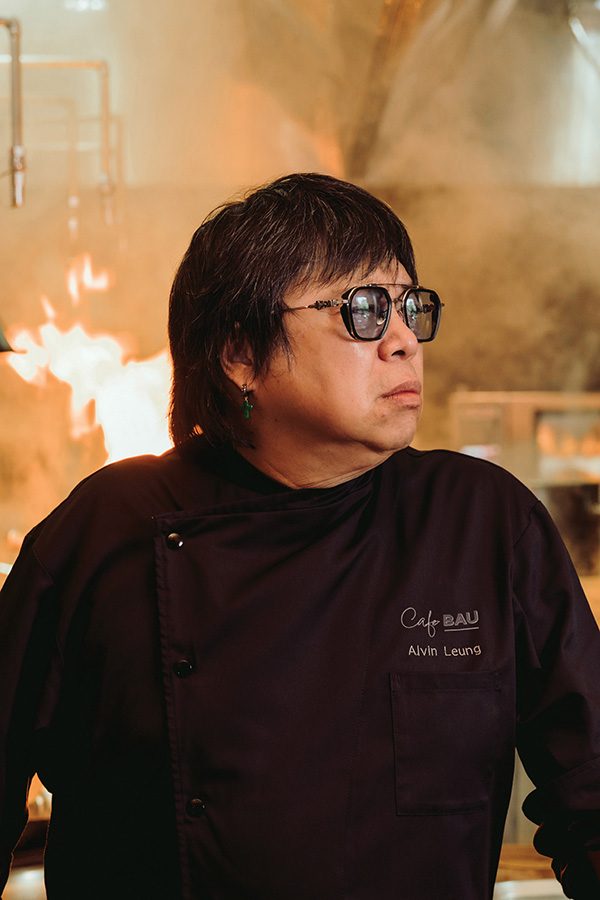
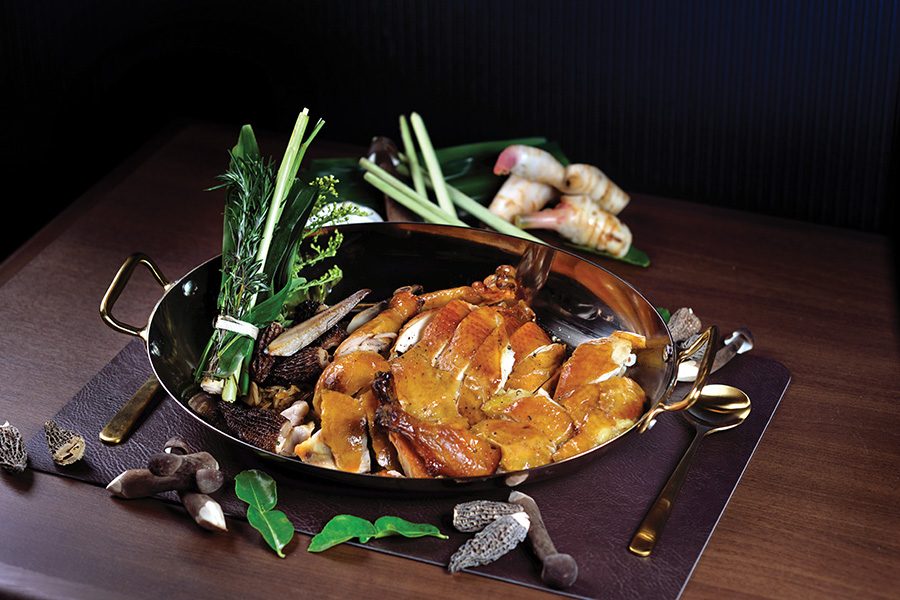
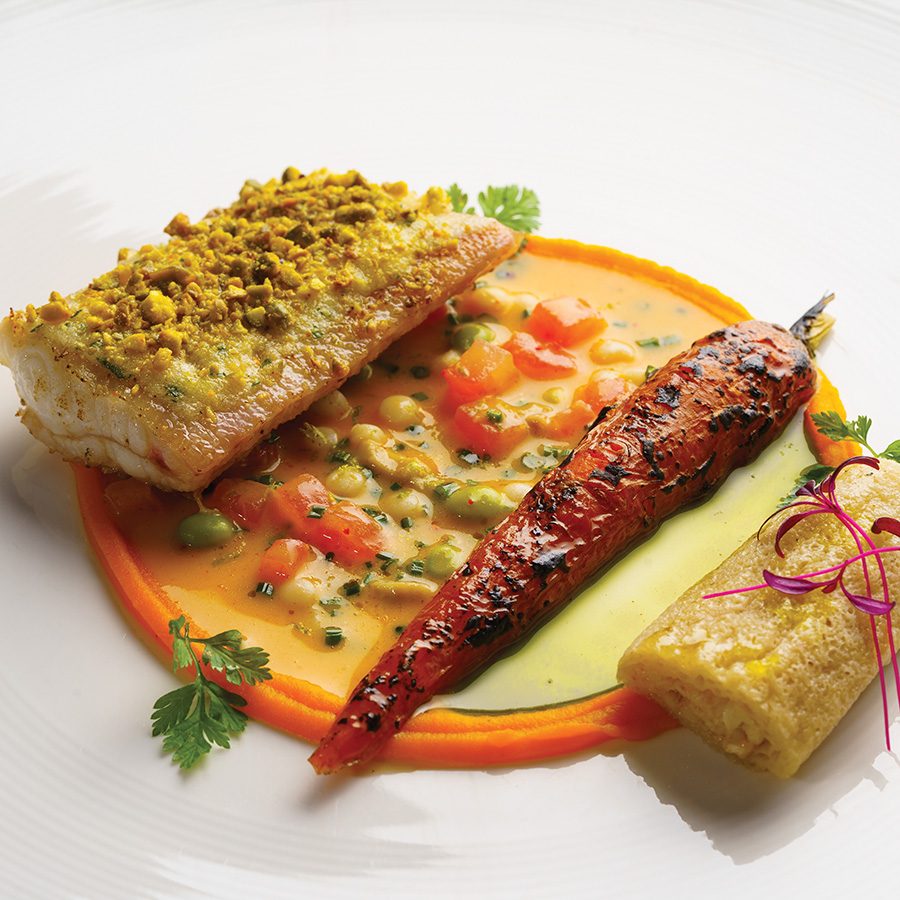
Alvin Leung
Culinary director, Café Bau
Opened last year, chef Alvin Leung’s Café Bau is one of the newest farm-to-table restaurants in Hong Kong. Promoting sustainable practices and celebrating local ingredients are integral to the restaurant, where everything from fruit and vegetables to condiments, preserved ingredients and honey are all grown or harvested by local producers.
For instance, Leung sources the star protein of his signature dish – roasted Ping Yuen chicken with mushroom and fried rice – from Hung Wan Farm in Fanling, while the grains come from Lantau Island’s Yi O rice fields.
“We share the same passion as the farmers in Yi O,” says Leung. “With their knowledge of ancient farming techniques and an unwavering determination, they’ve successfully cultivated rice in Hong Kong against all odds. Hong Kong is created by people with such strong determination, which is what we need to make the city a better place.”
Shop 8, Podium 1/F, J Residence, 60 Johnston Road, Wan Chai, 9737 0881
More inspiration
Hong Kong travel information
- China – the Chinese Mainland, Hong Kong SAR, Macao SAR and Taiwan Region
- Hong Kong SAR - English
- Chinese Mainland (China) - English
- Taiwan China - English
- 香港特別行政區 - 繁體中文
- 中国內地 - 简体中文
- 中國台灣 - 繁體中文
- Africa
- South Africa - English
- Asia
- Bangladesh - English
- Korea - English
- Singapore - English
- Cambodia - English
- 한국 - 한국어
- Sri Lanka - English
- India - English
- Malaysia - English
- Thailand - English
- Indonesia - English
- Maldives - English
- ประเทศไทย - ภาษาไทย
- Indonesia - Bahasa Indonesia
- Myanmar - English
- Vietnam - English
- Japan - English
- Nepal - English
- Việt Nam - tiếng Việt
- 日本 - 日本語
- Philippines - English
- Australasia
- Australia - English
- New Zealand - English



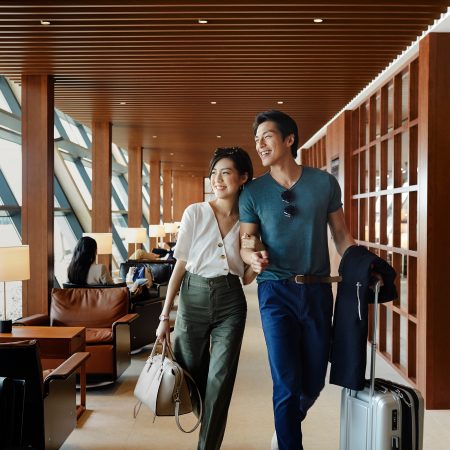
.renditionimage.450.450.jpg)


